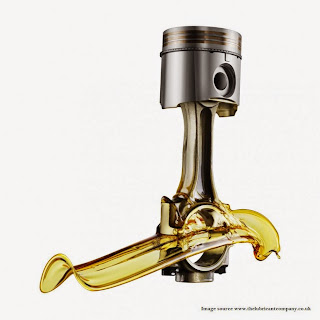The Importance of Quality Control in In Vitro Diagnostics – Know the Industry Future
What is in vitro diagnostics Quality Control?
In vitro diagnostics (IVD) Quality Control (QC) is a process used to ensure that a laboratory’s IVD tests are accurate and reliable. QC involves running samples with known results and comparing them to the laboratory’s results. This helps the laboratory to monitor the performance of their equipment, reagents, and personnel, to ensure compliance with regulatory requirements, and to aid in the detection and resolution of any issues.
Benefits of In vitro diagnostics Quality Control
- Improved accuracy: Quality control in in vitro diagnostics helps ensure that accurate results are produced from the tests. This is important to ensure patient safety and accurate diagnosis.
- Reduced costs: Quality control helps to reduce the costs associated with in vitro diagnostics. By ensuring accurate results, quality control can help to reduce the need for repeat testing and the associated costs.
- Improved patient care: Quality control ensures that accurate results are produced in a timely manner. This helps to ensure that patients receive the best possible care, as accurate results can help ensure that the correct diagnosis and treatment plan is identified.
- Increased confidence: Quality control helps to ensure that testing is performed in a consistent manner. This helps to improve the confidence of clinicians and patients in the results that are produced.
In vitro diagnostics Quality Control industry trends
- Increased Focus on Automation: The increasing number of tests and regulatory requirements has led to a shift in the industry towards automation of in vitro diagnostics (IVD) quality control. Automation is a key trend, as it allows for faster and more efficient testing and helps to reduce labor costs. Automation also enables the use of more sophisticated quality control methods and technologies, such as high-throughput or real-time PCR.
- Increased Demand for Rapid IVD Quality Control: As new technologies and tests emerge, there is an increased need for rapid IVD quality control. Rapid tests are becoming more popular due to their ability to detect changes in a sample quickly and accurately. This helps laboratories to quickly identify and respond to potential issues in their IVD tests.
- Increased Focus on Quality Assurance Programs: Quality assurance programs are becoming increasingly important in the IVD quality control industry. These programs help to ensure that IVD tests are performed accurately and consistently, while also minimizing the risk of
The Future of In vitro diagnostics Quality Control industry
In vitro diagnostics (IVD) Quality Control (QC) is a vital component of the healthcare industry, and its importance is growing as the industry continues to evolve. The demand for accurate and reliable diagnostics is increasing and as a result, the QC industry is expected to grow significantly in the coming years.
As the industry continues to develop, new technologies and methods of QC will be developed to meet the ever-changing needs of the healthcare industry. Automation and artificial intelligence are two areas that are expected to have a major impact on the industry. Automation will allow for faster and more accurate testing, while artificial intelligence will enable more intelligent decision making. Additionally, the use of big data analytics, predictive analytics, and machine learning will become increasingly important in the QC industry.
In addition to these new technologies, the industry is also expected to continue to focus on standardization and quality assurance. This will ensure that all QC products and services meet the highest standards of quality. Additionally, the industry will look to adopt best practices and develop new methods to ensure accuracy and consistency in all testing.
As the industry continues to evolve, the importance and role of IVD QC will also continue to grow. It is expected that the in vitro diagnostics quality control market will continue to grow at a CAGR of 5.3% and is projected to reach a value of $1.4 billion by 2026.
Related News:
https://www.whatech.com/og/markets-research/medical/689441-top-leaders-of-in-vitro-diagnostics-quality-control-market-and-business-strategies
Comments
Post a Comment